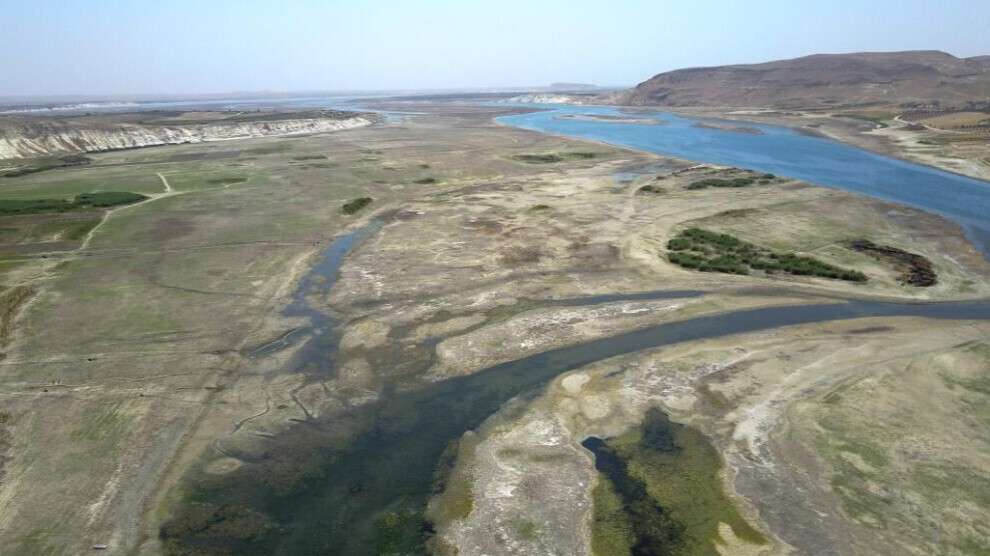Water pollution in the Euphrates River threatens environment and human health
The water pollution problem that emerged following Turkey’s reduction of water flow in the Euphrates River jeopardizes the lives of the people of the region and species.
The water pollution problem that emerged following Turkey’s reduction of water flow in the Euphrates River jeopardizes the lives of the people of the region and species.

The occupant Turkish state lowers the level of water flowing to North and East Syria through Euphrates River every day. According to the agreement signed between Syria and Turkey in 1987 regarding the Euphrates River, Syria’s share of water coming from Turkey is supposed to be 500 cubic meters per second (2500 barrels). However, less than 200 cubic meters of water now reach Syria.
Under the current circumstances, lowering of the water level has negative consequences in terms of living conditions of people, agricultural fields and power supplies in the region.
After the Turkish state reduced the water flow, the river now flows in small streams. Moreover, the reduction threatens the lives of thousands of citizens who need water for their field.
The decrease in water flow poses a great danger not only to humans but also to fish and other living species. The water is gradually getting polluted. These incidents could cause critical diseases and humanitarian crises. The pollution caused by the water reduction can be observed by the citizens of the region.
Cemal Ebdullatîf, director of Tabqa Municipality Environment Committee, spoke to ANHA about the issue and said, “With the decrease of water, chemical substances have surfaced in the water. Nitrogen, phosphorus and various agricultural residues were detected in the water as a result of a laboratory examination of the samples taken from the water."
He said that the waters coming from canals should not be mixed into the river.
Ebdullatîf urged the occupying Turkish state not to reduce the water flow, underlining that the water flow is the only solution to pollution and possible humanitarian disasters.
RELATED NEWS: